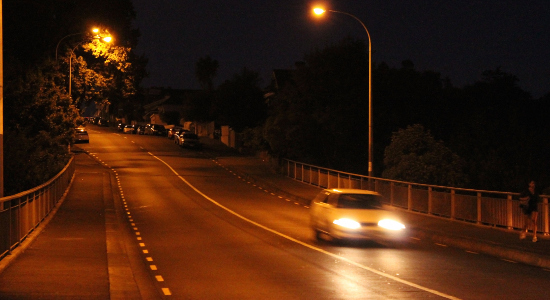
May 5, 2017 – The Wisconsin Supreme Court recently rejected a man’s claim that he could not be punished on two counts of hit and run causing two deaths because he only committed one crime, fleeing from the scene of the accident.
In State v. Pal, 2017 WI 44 (April 28, 2017), the supreme court unanimously affirmed the two-count conviction against Sambath Pal but through separate writings.
A four-justice majority concluded that Pal committed two offenses when he fled the scene, since he was fleeing from two victims. Three justices concluded that sentencing on two counts was appropriate because Pal fled from two separate accidents.
In April 2014, Pal was driving an SUV that swerved into oncoming traffic and collided with a group of motorcyclists. He drove off without stopping. One motorcyclist died immediately. The other died shortly after, succumbing to serious injuries.
Four days later, Pal’s father tipped police to Pal’s involvement, noting his son had returned his SUV with damage after driving in Janesville on the date of the accident. Pal’s girlfriend confirmed that Pal was in the area driving the suspected black SUV.
Prosecutors filed a complaint the next day, charging two counts of hit and run resulting in death under Wis. Stat. section 346.67(1), which requires operators of vehicles involved in accidents to stop, investigate, and provide certain information if they have reason to know the accident resulted in death, injury, or damage to a vehicle.
Pal ultimately pled guilty to both counts and was sentenced to 10-year prison terms on both counts to run consecutively for a total of 20 years. The sentencing judge also imposed consecutive 10-year terms of extended supervision for each count.
Pal sought postconviction relief, arguing that sentencing him on two counts was multiplicitous in violation of constitutional provisions that prohibit double jeopardy. The circuit court denied his postconviction motion and the appeals court affirmed.
Majority Says Two Victims, Two Sentences
The U.S. and Wisconsin constitutions contain double jeopardy clauses that prohibit multiple punishments for the same offense. Pal argued that he was punished twice for only one crime. But the majority rejected this argument, noting the two victims.
“First, we conclude that the two offenses for which Pal was sentenced are not identical in fact,” wrote Justice Annette Ziegler. “Second, we conclude that Pal has not rebutted the presumption that the legislature authorized punishment for each offense.”
 Joe Forward, Saint Louis Univ. School of Law 2010, is a legal writer for the State Bar of Wisconsin, Madison. He can be reached by email or by phone at (608) 250-6161.
Joe Forward, Saint Louis Univ. School of Law 2010, is a legal writer for the State Bar of Wisconsin, Madison. He can be reached by email or by phone at (608) 250-6161.
Pal argued that he committed only one offense: leaving the scene of an accident that caused the death of any person. But the majority explained that the state charged Pal twice because he left the scene and failed to fulfill obligations with respect to both victims.
“Because the two counts of hit and run resulting in death are not identical in fact, we presume that the legislature authorized punishment for each offense,” wrote Justice Ziegler, noting that Pal failed in his attempt to rebut that presumption.
“We reiterate that the statute is patently concerned with more than simply flight from the scene of an accident,” Ziegler wrote. “Instead, the statute prohibits flight until the vehicle operator has fulfilled his or her duties with regard to specified persons at the scene.”
Finally, Pal argued that his sentence was unduly harsh. But the majority noted that it was less than the statutory maximum. He could have received 30 years in prison, followed by 20 years of extended supervision for consecutive sentences on two counts.
In addition, Pal did not seem remorseful, as the court found he returned to his girlfriend’s house after the accident and drank beer and talked sports with his girlfriend’s stepfather. In addition, he did not turn himself in and researched how to avoid detection.
Concurrences
Chief Justice Patience Roggensack wrote a concurring opinion, joined by Justice Rebecca Bradley. Roggensack joined the majority opinion in full but wrote separately to note “an alternative way in which this case could have been analyzed.”
Instead of a two-step multiplicity test that considers whether offenses are identical in law and fact with a presumption in favor of cumulative punishments, Roggensack said the court could have employed a “unit of prosecution analysis,” which allows conduct to be divided into discrete acts for purposes of prosecuting multiple offenses.
“[U]nder a unit of prosecution analysis, the sole question would be whether the legislature intended to authorize multiple punishments through a single statute,” wrote the chief justice, noting the statute in this case authorized multiple punishments.
Justice Daniel Kelly, joined by Justice Shirley Abrahamson and Justice Ann Walsh Bradley, concurred in the mandate to affirm the appeals court based on the fact that there were two accidents, “one following immediately after the other.”
But these justices did not join the majority opinion, concluding that its reasoning “could be understood to allow, in a single accident with a single victim, a separate charge for each paragraph of Wis. Stat. § 346.67(1).” Justice Kelly said that would be improper.
